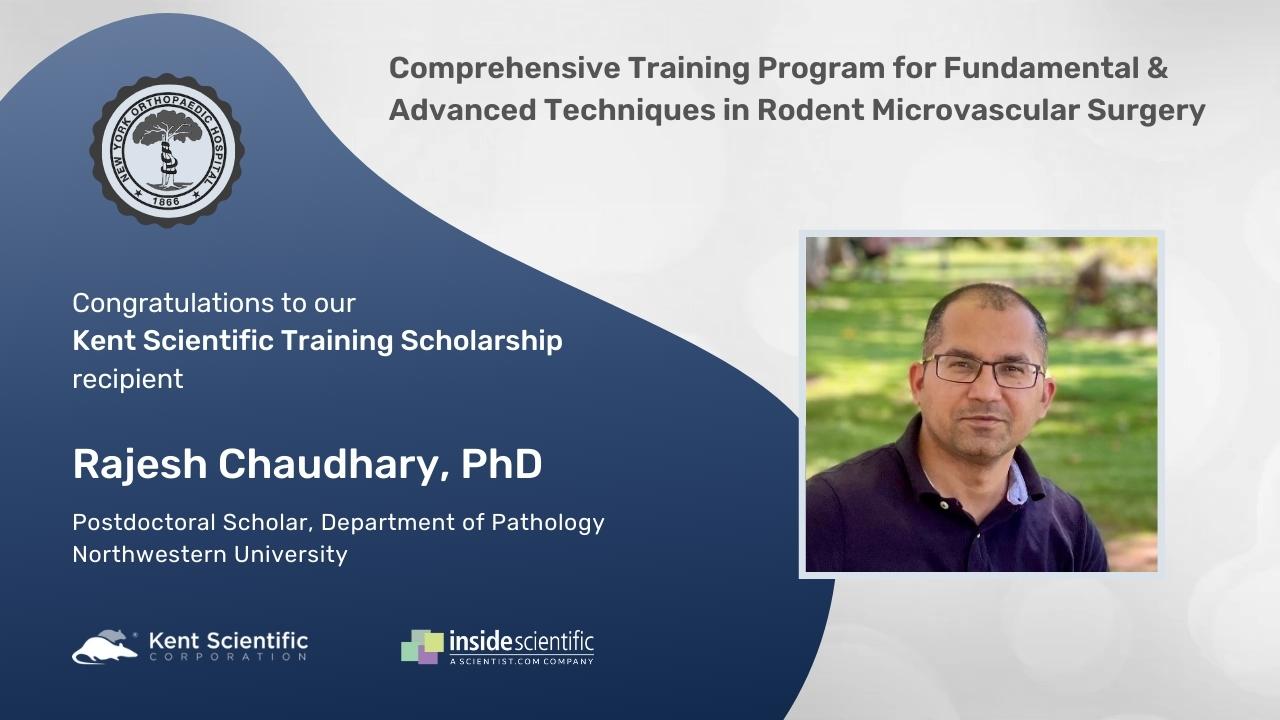Meet Rajesh Chaudhary, Cardiovascular Transplant Researcher and Rodent Microvascular Surgery Scholarship Recipient

Rajesh Chaudhary, PhD, is a postdoctoral scholar in the Department of Pathology at Northwestern University Feinberg School of Medicine. Having previously obtained an undergraduate degree in biotechnology, a master’s degree in medical biochemistry, and a doctoral degree in medicine, Rajesh is now interested in researching obesity-induced pathophysiology and cardiovascular diseases in particular. He is currently focused on understanding how metabolic intermediates regulate immune cell responses following myocardial infarction and how they aid in cardiomyocyte regeneration.
Recently, Rajesh won a Kent Scientific scholarship for the Comprehensive Training Program for Rodent Microvascular Surgery at Columbia University! We sat down with Rajesh to get an understanding of his motivation for applying to this scholarship, what he hoped to learn from this workshop, how these skills will help him conduct his research, and more.
What was your motivation for applying to this scholarship?
I was looking for a tutorial or training session in microsurgery because my work involves heart transplantation in mouse models. While I was looking for these opportunities, I came across this workshop and thought it was a perfect match for the kind of work that I’m doing. It was a very wonderful opportunity for me, for sure.
What did you learn in this surgical training workshop?
This workshop involved microvascular surgery where we had to do side-to-side, end-to-side, and end-to-end kind of joinings where you basically join two blood vessels. That was my main target and what I learned, and it was a very good workshop.
What type of anesthesia did you use?
For anesthesia, we used the SomnoFlo and SomnoSuite setups from Kent Scientific and 5% isoflurane. Basically, we followed the protocols, and we have that kind of setup in the lab here as well.
What skill was the most difficult to learn?
Since the training was on microvascular surgery, the hardest one was joining end-to-side because it requires a little bit of expertise and cutting techniques.
“It is a very fine technique, so that was a bit … challenging for me.”
Learning these skills were actually quick and not very difficult because of the teacher, Yelena Akelina. We had a very good trainer, so we were fortunate in that sense.
How will these new skills help you with your research?
Because my work involves heterotopic heart transplantation where I harvest hearts from donor mice and transfer them to recipient mice, this technique definitely helps me. In fact, I have already tried this technique in the lab after coming back from the workshop.
“So far, it looks promising to me, so I’m looking forward to using that [in] my research.”